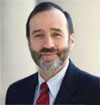What’s the near-term outlook for private medical practices?
Given its monopsony power in health care and its financial instability, the likelihood seems high that the federal government will act to reduce the revenue stream to physicians, hospitals, and nursing homes. And, although practice revenue will likely decline, the government has shown little interest in helping physicians reduce the costs of their practice.
The government could, for example, reduce practice costs through tort reform or by simplifying complex administrative rules and procedures. Both actions would likely provide the added benefit of improving patient care.
Sink or swarm? For practices that are treading water, a government-mandated reduction in revenue may force their owners to close shop, retire early, or join a large group practice. And, if the government boldly exerts monopsony power, it’s possible that independent physicians will join together in large group practices—and that might catalyze employed physicians to form professional unions. Physician unions are common in, for example, Germany and Canada, where the government exerts monopsony power in health care; there, physician strikes or work slowdowns occur about once a decade.
Stay tuned! I welcome your comments on these potential threats to the survival of private medical practice, to obg@qhc.com.
Who was the first person to be enrolled in Medicare? The second?
To find the answers, click here.
We want to hear from you! Tell us what you think.


